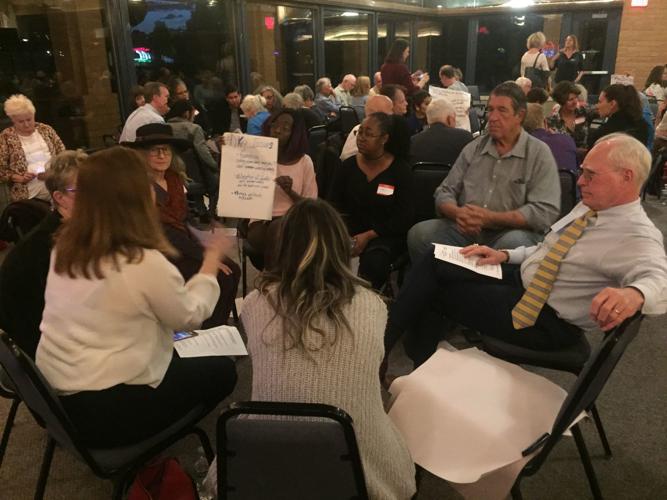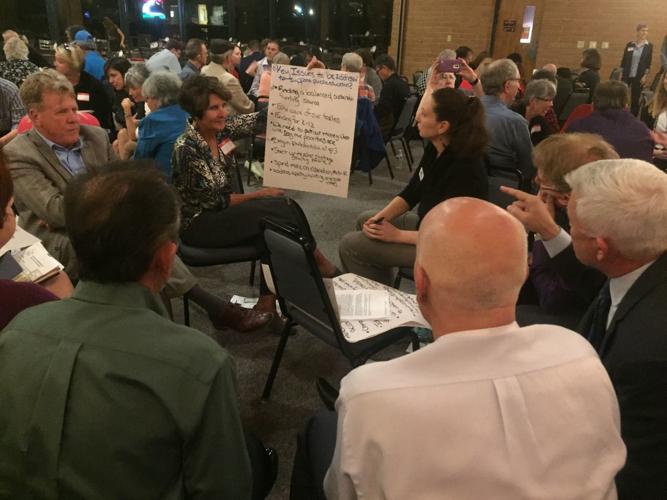Name an obstacle a community faces — economy, jobs, health, infrastructure, public safety, poverty — and at the heart of any sustainable solution you will find a common, essential ingredient: Education is critical to success.
It was heartening to see the more than 130 Tucsonans who attended an open community forum on education Monday evening. For two hours, participants shared their ideas for improving public education in Tucson and Pima County.
The Arizona Daily Star and City Councilman Steve Kozachik, who represents Ward 6, hosted the gathering. Catherine Tornbom, of the Center for Community Dialogue, led a legion of trained volunteers who worked with small groups to identify priorities and obstacles to boosting our education system.
The Star is focusing on education, and specifically early childhood education, as a priority on our editorial pages. The forum “Public Education in Tucson & Pima County: What’s Next?” was the first, with more to come.
Representatives from the Metropolitan Education Commission, Strong Start Tucson, First Things First, the Pima County superintendent of schools and the Southern Arizona Leadership Council gave brief presentations before the small group discussions.
Many of the small groups’ suggestions centered on several themes, including high frustration with the Arizona Legislature, and specifically its Republican majority, which has cut funding to public K-12 schools and higher education over many years, and favored vouchers and tax credits for private school tuition. Among the themes:
Vote: Elect legislators who not only say they support public education to get elected, but follow through in the fight for more public education funding. Most groups identified changing the Legislature as a top priority.
Early childhood education: High-quality education for 3- and 4-year-olds should be included in the public schools, and not seen as separate from K-12 education. No level of education should be pitted against another, participants said. Early childhood education is a necessity, not a luxury.
Engage parents and families as advocates: Schools thrive with more family involvement, because it helps students stay focused on learning while at home, and keeps families active partners in education. Lawmakers need to hear from parents directly.
Educate the public: Arizona has a long, complicated history in public education. It can be a lot to digest, but people need to know what’s happening at the state level, and the local level. Finding a way to share reliable information is essential, because people get into their echo chambers.
Business community consistency: When business leaders and organizations say they support education, they should not then support candidates with records of voting against public schools and better funding.
Include diverse views: One speaker summed it up well when she remarked that most people who attended the forum had similar opinions about education, and what needs to happen — but that the conversation has to include many views to be as productive as possible. Preaching to the choir gets a cause only so far.
We will have more to share about the March 26 forum soon, when we receive the detailed report on the groups’ discussions and recommendations.
In the meantime, if you have an idea for how to improve education — especially actions we can take locally, as a community — we’d love to hear it. Please email us at sgassen@tucson.com





